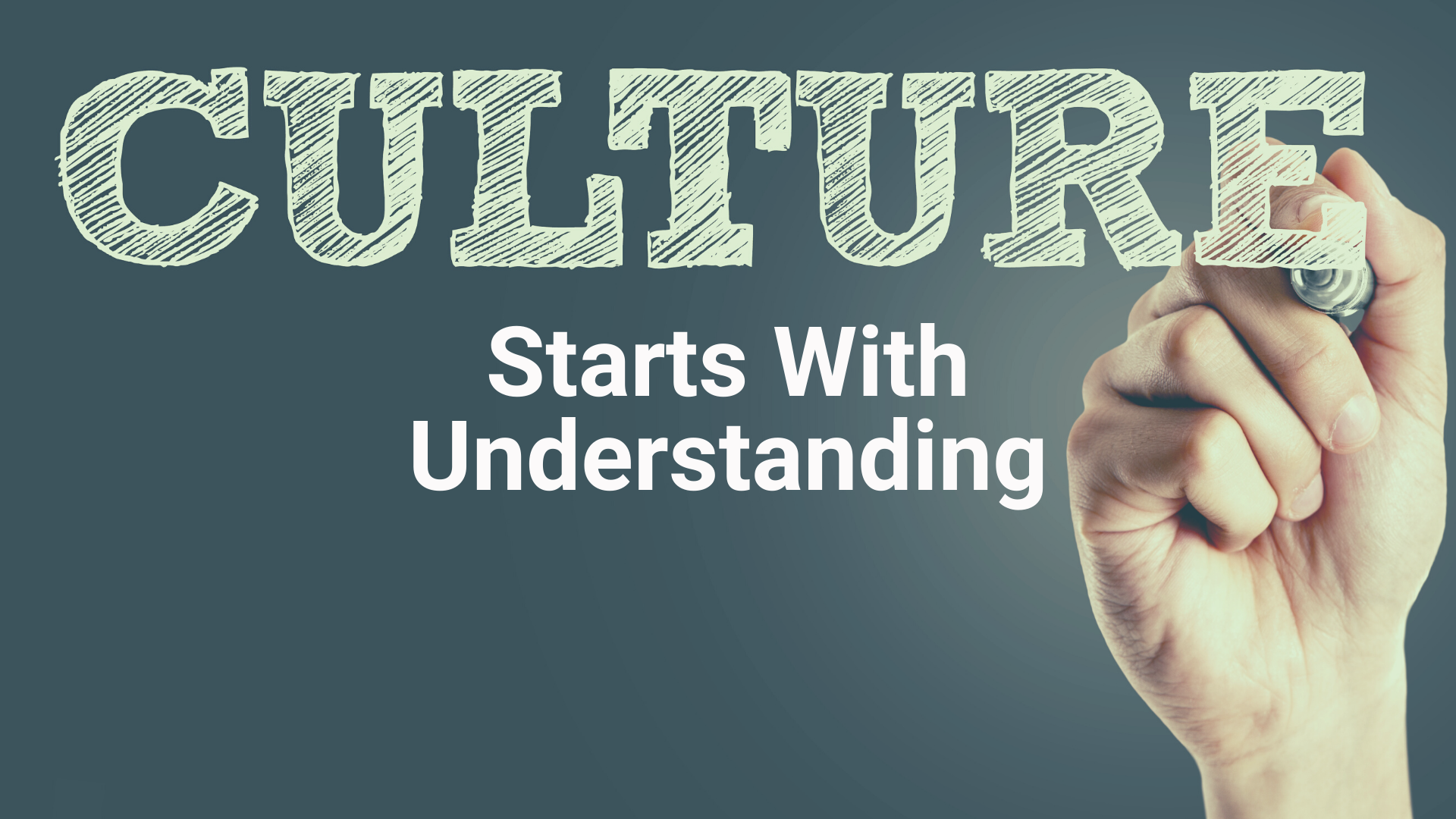If you’ve come across our podcast series, Listen Up, you’ve probably heard my conversation with Geoff Marlow. Geoff talks in depth about sensemaking and how good leadership creates the conditions in which sensemaking, decision-making and action-taking become ever more tightly coupled, rapidly and repeatedly iterated, deeply embedded, and widely distributed throughout an organisation.
The first time I heard this, it made total sense. An integral part of Harkn’s value is enabling better decision-making by giving leaders rapid, real-time insight into sentiment throughout their organisation.
And yet, the more I thought about it, I soon realised that I understood the role of decision-making far better than that of sensemaking.
Why is sensemaking even worthy of a mention? It’s just something we all do, right?
Not so, it turns out.
So, what is sensemaking?
There’s no single definition of sensemaking, but there’s a consensus that Gary Klein was along the right lines.
According to Klein, sensemaking is: "a motivated, continuous effort to understand connections (which can be among people, places, and events) in order to anticipate their trajectories and act effectively."
You could be forgiven for thinking that sensemaking is a given in the workplace. Making sense of complex and ambiguous situations is just stuff we do every day, right?
Innate. Something you’re good at or not.
Well, perhaps not.
Sensemaking can certainly be spontaneous, driven by individuals’ natural inclination to make sense of their experiences, but where companies intentionally foster and encourage sensemaking, they unlock a serious competitive advantage.
In an organisational context, sensemaking is about working to collectively understand the unknown or unambiguous. When individuals better understand how wider circumstances affect them, their team, and the whole organisation, better decision-making and aligned action-taking result. So yes, sensemaking is something we all naturally do on our own, but we don’t tend to take it as seriously as we should as an organisational capability.
When you view sensemaking as a tool, it better equips your organisation to manage a whole host of scenarios, including:
- Shifting market trends
- New technology
- Changing politics
- New regulations
- Organisational restructure
- Changing culture
- Climate change
We can now add a global pandemic to that list. During the early days of the COVID-19 pandemic, every organisation on the planet was engaging in sensemaking – whether they realised it or not. We were all trying to make sense of a new reality and give structure to radically new ways of working. Faced with widespread uncertainty and constantly changing circumstances, collective sensemaking quickly became essential.
But it shouldn’t just be something we adopt at crisis point; sensemaking needs to be continuous and innate for powerful organisational success.
"[Sensemaking is]: a motivated, continuous effort to understand connections (which can be among people, places, and events) in order to anticipate their trajectories and act effectively."
The benefits of better sensemaking
At its simplest, you could argue that good sensemaking is about better decision-making. The more we can make sense of information, relationships, and situations, the more likely we are to make better decisions and manage risk. After all, context is king.
But there’s more wrapped up in the pursuit of effective sensemaking than decision-making alone.
Innovation and creativity flourish in environments that promote sensemaking. Actively seeking multiple perspectives, diverse experiences, and interdisciplinary collaborations opens you up to breakthrough ideas and novel solutions.
Collaborative sensemaking improves cohesion and productivity, too. When employees have a shared understanding of a situation it reduces confusion, enhances teamwork, and promotes alignment towards shared goals.
Organisations that prioritise sensemaking create a culture of continuous learning, where individuals and teams actively reflect on experiences, update mental models, and share insights. This facilitates upskilling, knowledge transfer, and the ability to adapt and innovate over time.
In our podcast, Geoff references this quote by the late Arie de Geus: “the only sustainable competitive advantage is to learn quicker than your competitors.” This quip remains as relevant as ever when we're talking about sensemaking and organisational dynamics today.
Where to start
If you want to improve the sensemaking capabilities of your team or organisation, here are three things you should focus on:
1. Cultivate a learning mindset
Encourage curiosity and a willingness to question assumptions. Empower your employees to experiment, seek feedback, and actively learn from their successes and failures.
Of course, this is wrapped up in psychological safety. If your people don’t feel able to challenge the status quo or take risks – even small ones like making suggestions – then experimentation will happen only in pockets.
But, when your group starts to operate with a learning mindset, it naturally fosters an inclination for sensemaking and continuous improvement.
2. Foster collaboration
Create opportunities for team members to engage in joint sensemaking activities like brainstorming and workshops. Again, ensuring psychological safety is key here.
These collaborative sensemaking activities harness the collective intelligence of your team. Encouraging thought diversity brings more comprehensive insights, which in turn improves decision-making.
Collaboration also creates a common understanding of what’s most important right now, strengthening connections and a feeling of belonging.
3. Optimise sensemaking resources
Equip your people with resources that will enhance their sensemaking capabilities. This might include broadening access to existing analytical tools and knowledge management systems and offering training in critical thinking and analysis.
Embrace transparency by making more information available to those who can make the best use of it (this is likely more people than you think).
4. Encourage open dialogue
It’s human nature to assume our experiences and opinions align with those of our peers. When facing uncertain or complex circumstances, this projection tends to become more pronounced.
Encourage your people to check in with each other regularly, to compare views and opinions in a respectful and empathetic way. Coregulation helps your people to move towards resolution more quickly, while curiosity and active listening fosters better relationships and shared understanding.
"The only sustainable competitive advantage is to learn quicker than your competitors."
Where Harkn comes in
For sensemaking to thrive, you need the right environment, tools, and culture. The transparent, continuous dialogue at the heart of Harkn makes sensemaking a natural and ingrained part of your organisation. And, because it’s always on and always live, everyone can see exactly what’s working and what’s not.
How?
1. Psychological safety
For sensemaking to be effective, you first need psychological safety. By enabling anonymised dialogue, we encourage more voices to speak without fear of retribution or unconscious bias. This unfiltered, honest feedback gives leadership and employees alike a much clearer picture of reality.
2. Continuous context
Continuous context through real-time insights is essential to understanding organisational dynamics. This is invaluable for leadership, but it’s beneficial to everyone in your organisation. Understanding not just what’s happening, but why it’s happening, is essential for making better-informed decisions.
3. Shared awareness
By unlocking more voices in your organisation, we create greater shared awareness. When people better understand the experiences, opinions, and feelings of their peers, they are armed with the context they need to start making sense of complex situations together.
4. Aligned action
What do you get when everyone in your organisation can communicate with each other, in real time, and without fear? An increased ability to make sense of complex situations, continuous learning, and – crucially – aligned action.
The competitive advantage
Organisations, by their very nature, are complex and dynamic. Circumstances are constantly in flux – whether it’s market shifts, customer needs, technological advancements, or internal issues.
Leaders who respond fast and seize opportunities to help their people thrive are the ones that gain the all-important competitive advantage, and that starts with sensemaking.
We’re always sensemaking, whether we realise it or not, but when we actively adopt and practice it, we unlock greater individual and collective success.
Understand more about how Harkn can support sensemaking in your organisation here. For an informal chat about our platform, why not book a virtual coffee?




